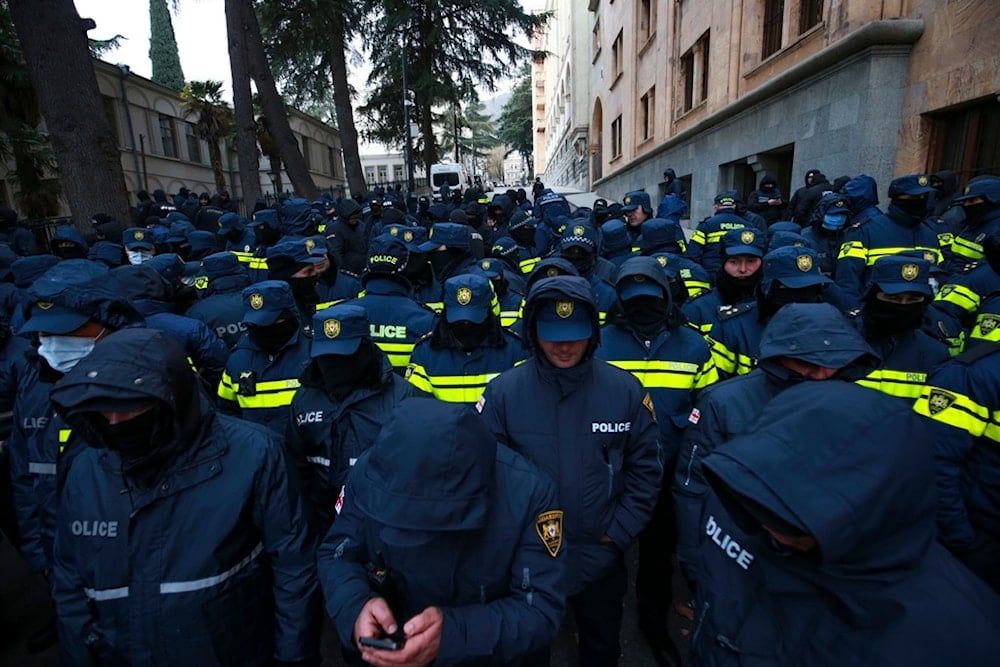Georgian PM slams EU, Germany for fueling protests
Georgian PM Kobakhidze accuses the EU and German ambassador of encouraging radicalism and interfering in domestic politics ahead of the October elections.
-

Police block a street to prevent demonstrators during a rally outside the parliament to protest against the government's decision to suspend negotiations on joining the European Union in Tbilisi, Georgia, Saturday, December 14, 2024. (AP)
Georgian Prime Minister Irakli Kobakhidze on Wednesday accused the European Union and Germany of interfering in his country’s internal affairs by supporting ongoing anti-government protests.
The remarks came after European Commission foreign affairs spokeswoman Anitta Hipper voiced solidarity with demonstrators, praising their defense of “European values, democracy, and freedom of speech.”
In response, Kobakhidze said her comments amounted to “gross and direct interference” that encouraged radicalism and deepened political polarization. He added that such statements risk eroding Georgian citizens’ trust in the European Union.
German ambassador summoned
On the same day, Kobakhidze confirmed that German Ambassador to Tbilisi Peter Fischer had been summoned to the Georgian Foreign Ministry for what he described as violations of the Vienna Convention.
The prime minister accused Fischer of actively supporting the opposition and attempting to pressure the country’s judicial system.
“Mr. Fischer is directly involved in the activities of the radical opposition,” Kobakhidze told reporters, adding that the diplomat had repeatedly criticized the government and aligned himself with protest leaders.
Rising tensions before elections
Georgia has seen regular demonstrations since November 2024, when the government announced that negotiations on EU accession would be postponed until 2028.
Opposition groups, led by the United National Movement, founded by former president Mikheil Saakashvili, have vowed that a “peaceful revolution” will take place during the upcoming local elections on October 4.
European officials have continued to voice support for the protesters, while Tbilisi insists that such statements cross diplomatic lines. The standoff underscores rising tensions between Georgia’s government and its Western partners at a critical moment in the country’s political trajectory.

 2 Min Read
2 Min Read










